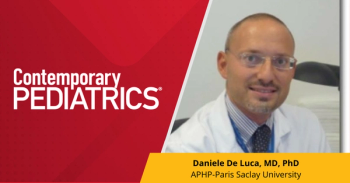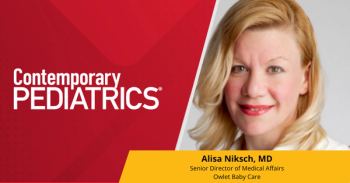
Hydroxycarbamide beneficial for infants with sickle-cell anemia
Administering hydroxycarbamide to very young children with sickle-cell anemia reduces common but serious adverse effects, particularly pain and dactylitis, and results in lower rates of acute chest syndrome, hospital admissions, and transfusions. Hydroxycarbamide also improves laboratory parameters.
Administering hydroxycarbamide to very young children with sickle-cell anemia reduces common but serious adverse effects, particularly pain and dactylitis, and results in lower rates of acute chest syndrome, hospital admissions, and transfusions. Hydroxycarbamide also improves laboratory parameters.
Researchers conducted a randomized, controlled, clinical trial at 13 US trial centers involving 187 children with hemoglobin SS (HbSS) and 6 with hemoglobin Sβ⁰thalassemia who were 9 to 18 months of age. Participants received either liquid hydroxycarbamide (20 mg/kg daily; n=96) or placebo (n=97) for a 2-year period; 83 patients who received hydroxycarbamide and 84 placebo recipients completed the study. Primary endpoints included splenic and renal function. Researchers also assessed blood count, adverse clinical events, other aspects of organ function, and toxicity.
There were no significant differences between the groups in terms of primary outcomes. However, treatment with hydroxycarbamide significantly reduced pain events compared with placebo (177 events in 62 infants vs 375 events in 75 infants, respectively) and decreased dactylitis events (24 events in 14 infants compared with 123 events in 42 infants who received placebo).
There also was evidence suggesting that those treated with hydroxycarbamide had a reduction in acute chest syndrome, hospitalization rates, and transfusions. In addition, active treatment had beneficial effects on hemoglobin and fetal hemoglobin and reduced white blood cell count. The most common toxicity reported in the study was mild to moderate neutropenia, with a significantly higher rate in hydroxycarbamide-treated infants (107 times in 45 patients vs 34 times in 18 patients on placebo).
The researchers believe that the results of the study should have a major effect on guidelines for the management of children with sickle-cell anemia and that on the basis of the safety and efficacy data from this trial, hydroxycarbamide therapy can be considered for all very young children with sickle-cell anemia.
Wang WC, Ware RE, Miller ST, et al. Hydroxycarbamide in very young children with sickle-cell anaemia: a multicentre, randomised, controlled trial (BABY HUG). Lancet. 2011;377(9778):1663-1672.
Newsletter
Access practical, evidence-based guidance to support better care for our youngest patients. Join our email list for the latest clinical updates.








